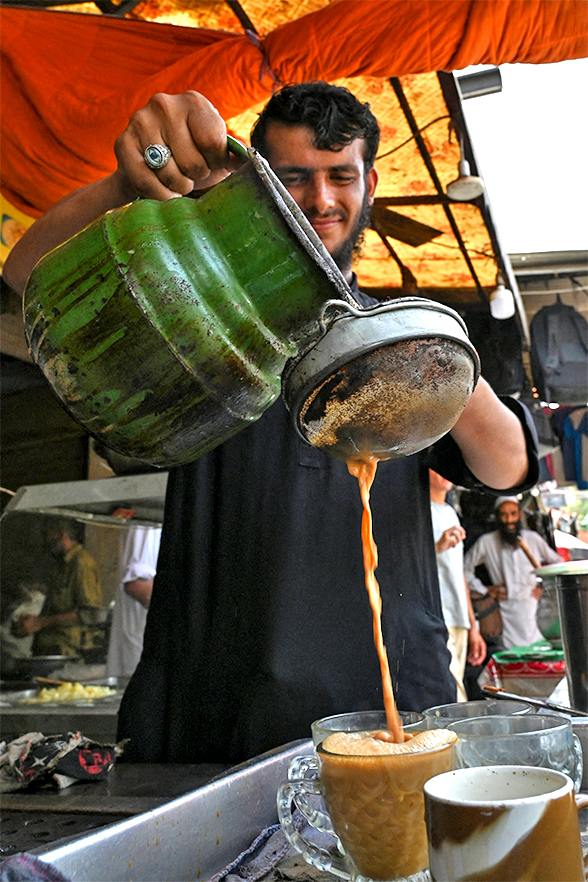ISLAMABAD: A minister in Pakistan’s newly elected government faced criticism Wednesday following his plea to the nation to drink less tea to help save on imports amid a deepening economic crisis.
Pakistan is among the world’s top tea importers, a hugely popular drink among both the rich and the poor in this country of 220 million people. The government has to spend about $600 million from the central bank’s hard currency reserves for tea imports annually.
A Pakistani is believed to drink at least three cups of tea a day on average, the nation’s caffeinated drink of choice.
Prime Minister Shahbaz Sharif, who took over in April after Imran Khan was ousted in a no-confidence vote in Parliament, has pledged to improve the ailing economy and meet conditions set by the International Monetary Fund in an effort to revive a $6 billion bailout package.
Still, Planning Minister Ahsan Iqbal’s appeal to drink less tea surprised many.
“I appeal to the people to reduce their tea drinking by one or two cups a day because we also borrow money for the tea, which is imported,” Iqbal said at a press conference on Tuesday.

An employee pours tea cups for customers at a restaurant in Islamabad, Pakistan, on June 15, 2022. (AFP)
Some have openly advised Iqbal on social media to resign.
“Yesterday Ahsan Iqbal asked us to consume less tea and tomorrow they may say eat less. Is it a solution?” asked Dil Sher, who owns a roadside tea stall on the outskirts of Islamabad.
The government has so far hiked the price of fuel, natural gas and electricity by up to 45 percent, sending food prices soaring. Last week, Sharif’s Cabinet presented its first budget to Parliament for approval, levying more taxes on the rich and vowing to remove subsidies on energy and fuel as demanded by the IMF.
Hours long power cuts across Pakistan have also made Sharif’s coalition government unpopular.
Now in the opposition, Khan’s Pakistan Tehreek-e-Insaf party also took to Twitter, claiming Sharif’s government has damaged the economy, barely two months since taking office. Sharif, however, says he is paying the price for the mismanagement of his predecessor’s government.
During his 3 1/2 years in power, Khan’s government also faced criticism, including when a lawmaker from his party, Riaz Fatyana, appealed on people to use less sugar and eat just one flatbread with every meal instead of more amid a shortage of sugar and wheat at the time. In Pakistan, most people consume roti, a flatbread similar to India’s naan.
Pakistan’s currency, the rupee, plummeted to a record low in trading against the US dollar on Wednesday. According to the central bank, the rupee slid to 206 against the US dollar.
















